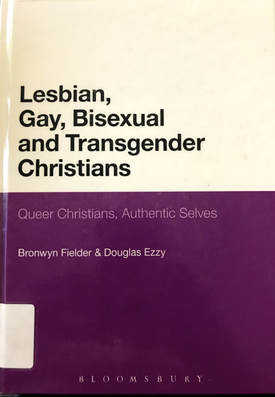 How often, I wonder, has a Lesbian, Gay, Bisexual, or Transgender Christian been attacked as a religious, moral, or logical 'impossibility', 'a contradiction in terms', a living oxymoron? Pretence and deceit are certainly themes which hover around gender diverse people and discussion of our lives and sense of being. Spiritually speaking, such features are typically regarded as unhealthy. Whilst, for instance, there are some positive stories of trickery in the Bible (notably in the case of the patriarch Jacob), these are usually the sign of a wayward, scheming, selfish or misdirected person. Later transitioning religious people are thus frequently caught in certain traps as they become the more 'authentic' selves God calls them to be. On the one hand, we may be called people of pretence and deceit by those who refuse to accept the realities of our identity. On the other hand, we may be attacked for hitherto seemingly living lives that were not true or misleading. At the very same time, we may also be dealing with our own shame, guilt, and confusions about what we may have 'pretended' to be. Yet, as we are reminded in both the powerful scriptural text of 2 Corinthians 6, and a just published book Lesbian, Gay, Bisexual and Transgender Christians: Queer Christians, Authentic Selves (by Bronwyn Fielder & Douglas Ezzy, Bloomsbury Press 2018),, we may be 'treated as impostors but are true' (2 Cor 6.8b)... Lesbian, Gay, Bisexual and Transgender Christians is a welcome Australian contribution to shedding light on the lived truth of LGBT Christians and dispelling the deceits which continue to be projected upon us. The book is based on qualitative research with LGBT Christians in Australian Metropolitan Community Churches (MCC) and some Uniting Church members. Blending first person stories with clear thoughtful analysis, it explores the pain and delight of LGBT Christian journeys and the 'liveable lives' we create as we participate with God in the resolution of our challenges. It is not without its questions for the MCC and other LGBT Christian affirming spaces. There are, for example, some issues of residual patriarchy, conformity with certain normative Christian expectations, and predominantly essentialist understandings of self, which need further wrestling with and resolution. Yet the overall picture is one of a pursuit of authenticity which both empowers people of diverse sexuality and gender and which is also supported and embodied in deeper relationships and understandings of God. Notably, the importance in LGBT Christian lives of what Charles Taylor called other 'horizons of significance' (such as bible, tradition, other people and God) demolishes the malicious lie that LGBT Christian journeys are about individualist desire or wilful disregard of God and theology. If anything, LGBT Christians are shown to be much more seriously committed than many other Christians to bible, tradition and the spiritual path. We simply do not buy in any longer to the harmful pretences and theological deceits of some others.
As 2 Corinthians 6.8b puts it, we are indeed not impostors. Instead, as 2 Corinthians chapters 5-6 outline, we are sharing instead in 'a new creation' (2 Cor 5.17) in which we are called to ministries of reconciliation. This is not any easy calling. For, as LGBT Christians can attest, 'as servants of God we have commended ourselves in every way' (2 Cor 6.4ff): in our many sufferings, and in the fruits of the Spirit we dwell on and seek to embody,: 'with genuine love, truthful speech... with the weapons of righteousness for the right hand and the left; in honour and dishonour, in ill repute and good repute.' (2 Cor 6.6-8). I heard 2 Corinthians 5-6 again this week as one of the eucharistic readings for Ash Wednesday, that great focal day for Christian repentance and a new start. 'Now is the acceptable time: see, now is the day of salvation!' proclaims Paul (2 Cor 6.2). Fielder and Ezzy's work show how that is being made real, as LGBT Christians long for genuine repentance and a new start for our lives with others. This is at the heart of the hope and the work of Equal Voices and other bodies who join with us. For the conclusion of that Ash Wednesday reading has it spot on in our loving invitation to all our fellow Christian siblings: 'We have spoken frankly to you Corinthians; our heart is wide open to you. There is no restriction in our affections, but only in yours In return—I speak as to children—open wide your hearts also. (2 Cor 6.11-13)
0 Comments
Leave a Reply. |
AuthorThe Revd Dr Jo Inkpin: Archives
March 2024
Categories
All
|
 RSS Feed
RSS Feed